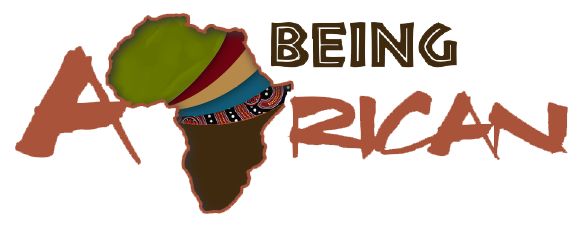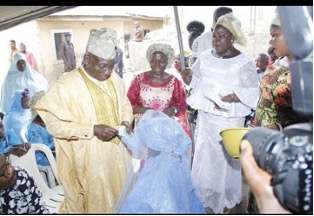
Yoruba Marriage Practices
Yoruba Tribe is one of the 3 most recognized tribes in West Africa. They are concentrated in the southwest part of Nigeria.
Igbeyawo, which means “taking a wife“, is a Yoruba custom that involves taking a wife officially and going through all the necessary procedures. The Yoruba place a high value on the bond between a man and a woman; they view marriage as a sacred and happy occasion.
For the Yoruba, marriage entails bonding with every member of the family in addition to simply marrying a wife. As is said in Yoruba culture, family means a man marrying a woman and embracing all her family members. As for the lady, it is said that she is going to her family house. However, in this context, her husband’s house is referred to as her family house because she is marrying not just the husband but also every member of the household.
bound in addition to the union of a man and a woman. The Yoruba tribe refers to this tradition as a way of teaching their children the ethics of behaving when they get married.
In Yoruba tribes, “Igbeyawo” ceremonies last a minimum of two days and a maximum of one week. This can vary as a result of individual wealth, influence, and family dynamics. In Yoruba culture, education is not a prerequisite for marriage. You can wed anybody you think is right for you and who will make you happy.
The “Owambe” (meal is there) is what we refer to as the highlights of marriage in the Yoruba tribe. This is what everyone looks forward to and makes it one of the most talked-about events in all the tribes in Nigeria.
Owambe– It is there / Food is there
This is what some people refer to as ‘we bring the party to you’, this is a slang term used in this part of the region to qualify an event where a lot of celebration takes place and you get to eat special and various kinds of foods such as ‘our highly celebrated Jollof rice’ accompanied with a lot of beef and drinks.
What Is Involved?
Orogbo- Kola nut and Obi-Bitter Kola
Ireke- Sugarcane
Adun- Sugar
Oyin- Honey
Ejagbigbe- Dry fish, specifically the head
Sinnap Simon – Traditional gin
Ẹrú Ìyàwó – Bridal things
Who Are Involved?
Alarina / Asoju
Bride and Groom
Alaga ijoko – Chairperson
Bride and Groom’s Families
Iyawo Ile- aunts and wives on the groom’s side and bride’s side
Igbeyawo – Marriage in the Yoruba tribe. (The Process)
When a man sees a lady he likes, it is not permitted for the man and woman to meet before the marriage rites are performed in the Yoruba tribe since celibacy is so highly valued and celebrated and not taken for granted.
The man will have to meet and communicate with someone known as “ALARINA,” which means “intermediary.” This intermediary may be a buddy, sibling, or elderly family member. Anyone associated with the lady is also eligible to play this part. This person will inform the lady of the man’s intentions. When the lady becomes aware that someone likes her and she likes the person back, the intermediary will then let the bride’s parents know that a man is interested in their daughter’s hand.
The bride’s parents will next call their daughter and inquire about her feelings for the man in question. Once she replies positively, the bride’s family will begin looking into the groom’s family, including their history, clan, any illnesses that might run in the family, and other factors.
When everything has been completed correctly and without any problems, the bride’s parents will instruct the Asoju/Alarina to invite the groom and his family to their home, where the date of the wedding will then be discussed.
“Mọ mí kí Mọ ẹ” (Meet and Greet), referred to as introduction, is the process of the groom’s and bride’s families meeting. The phase is only the first step and there is no payment involved.
The bride’s family first asks the bride-to-be what she would like to receive from her husband first. This is written down and is known as the IRU IYAWO (Engagement list), after which the family of the bride will then write their list. All of these will be sent across to the groom’s family, and this is what they are expected to bring when coming for the engagement ceremony.
Ẹrú Ìyàwó – Bride engagement items
This is all the items of the wife bought by groom’s family, it contains things such as Bride price, traveling bag (Bembe), brand new outfits, pieces of jewelry, engagement ring, and Ẹrú idana such as Yam (41psc), salt, Vegetable oil, red oil, rice, sugar, a basket of fruits, fish, honey, bitter kola, kola nut, water, umbrella, Seaman’s Schnapps and envelopes of money
‘IDANA’ the second phase is the actual Traditional Marriage known as Engagement
The engagement ceremony takes place in the bride’s compound, or ‘Igbagede’-open space which is modernized now into event centers and large spaces, due to lack of space in the bride’s house or other factors.
The families of the bride and groom-to-be will select a uniform garment for the traditional ceremony. This garment is known as ‘SANYAN’ and is more often known by the modernized name of ‘ASO-EBI’.
As soon as they get to Igbagede, the two families will be seated opposite one another in the open area. The Alaga iduro, also known as the chairperson, approaches the bride’s family and formally asks for their daughter’s hand in marriage.
She does this by saying, “On behalf of so and so family, (inserting the name of the groom’s family and the community they come from) we are here to seek a beautiful flower we saw in your garden. Would you permit us to do that?”
The chairperson will return to the groom’s side after the bride’s parents have responded positively and let them know. They will then sing with all of their instruments, such as “benbe” and “ishekere,” in celebration as they move to the bride’s parent’s side. In today’s marriage, this instrument is modernized to music and drums.
Idobale – Prostration
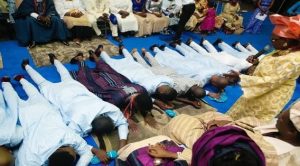
The entire groom’s family prostrates itself to show their gratitude to the bride’s family for agreeing to give their daughter’s hand in marriage. In modern marriages, this prostration is performed seven times. In earlier marriages, there was no assigned number. The bride’s family will then signal their acceptance by asking them to stand up and lead them back to their seats.
Afihan Iyawo – Ushering the bride in
People from the bride’s family known as “IYAWO ILE” carry out this process. The groom’s family will be asked to pay for the cost of transportation (owo okor) before the bride is brought out. There is no set amount for this as whatever they have is sufficient. They occasionally go on to demand more money, known as “Ibombo” (we trained your bride and fed her properly). When this payment has been received by the iyawo ile, the bride will be brought out and she will be accompanied by singing praises (Oriki), and various types of music.
Iwure – praying session
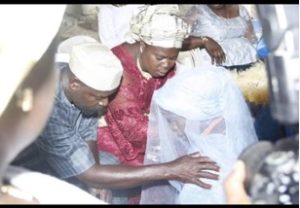
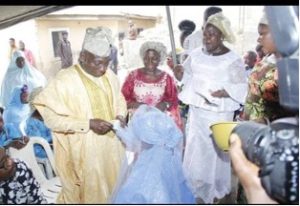
The bride is first taken to her family, where she is prayed for, and then she is moved to the side of the groom’s family, where the groom’s father will be the one to reveal the bride’s face. The ‘OWO ISIJU’ (opening of the bride’s face) fee is what he must pay before revealing her face; it is not only paid by the bride’s father but can be supported by the family too, and there is no set amount associated with it. The bride’s family will then offer prayers after that.
Finding the Husband
The husband is seated amidst his friends and the bride will be instructed by the chairperson to look for her husband in the crowd and make him wear a cap, While she is finding the husband she is singing a song that goes thus “Ẹnì fìlà mí báwo orí ẹ lómí a dé” it means anyone my cap fit in will take it. This signifies she knows who she wants to get married to and is sure of it. When she does, the husband is then taken out of the crowd to seat with his wife.
Sealing of the engagement
After the wife has identified her husband both of them will be seated together and the marriage will be sealed using the following.
Ogede- Banana which signifies fruitfulness of marriage
Oyin- Honey, sugarcane, and sugar, it means their marriage will be sweet
Iyo- salt signifies tastiness, and means their marriage will never be sour
Orogbo- Bitter Kola means they will last like bitter kola
Obi- Kolanut to wave sickness and diseases
Eja Abori- Fish Head means they will always overcome their enemies
Seaman’s Schnapps – legendary alcohol signifies forever in the marriage
Cash Envelopes
These are envelopes that come in multiples with names inscribed on them. They are given to the bride’s family to cross-check if they are complete. If they are, the chairperson then makes an announcement and the wedding ceremony is over. The marriage is fully official.
After Marriage Custom
Sending off the bride (this tradition is no longer honored in today’s traditional marriage)
After the traditional marriage, a formal white wedding can follow depending on the religious beliefs of each family. A tradition of sending off the wife is performed on the night of the wedding.
Purpose
To officially hand over the bride to Iyawo Ile (aunt and existing wives she met at the husband’s family house), where she will be taken care of.
Who is needed?
The aunts and existing wives who are present in the husband’s house.
What is needed?
Water and New clothes.
How it is done
The ceremony begins at precisely 8 p.m. and the aunts and existing wives on the groom’s side all follow the bride as she will have to walk to the house, accompanied by songs to make her happy.
When they are about to arrive at the groom’s family house the groom is not expected to be met at home till the process is done. Water will be poured at the feet of the wife (1st set of pouring) signifying that she is entering the house in peace. This process is repeated (2nd pouring), and finally, when the bride steps into the house the last water is poured on her leg and she makes sure she steps on the water and then settles inside the house. After which she will be handed over to the eldest wife in the house, who will take her to her room and pray for her. Then to her father and mother-in-law’s room where she will receive another prayer. After this process the groom is allowed inside the house.
Other chores
The wife will be given a variety of food from both families. The food from her side of the family is delivered daily for 7 days in an amount that allows her and her husband’s family to dine together. Additionally, she must change into fresh clothes every day for seven days at her husband’s family home, even if she doesn’t leave the house during that time.
7 day celebration
The wife will be honored with a celebration after the seventh day, following which she can leave the house and move freely.
However it is taboo for the groom not to meet his wife as a virgin as there is always a virginity confirmation at midnight of the wedding. If this happens it can cause serious calamities between the families and most times leads to the nullification of the marriage. And bringing great shame to the family of the bride and her people.
As modernization and religion have taken hold, all of these ancient marital rituals have evolved. While some are still observed, most are not.
The “Nikkai” by Muslims and the Church ceremony or registry by Christians are the other third phases of marriage; these third phases are only frequently used in modern marriages.
Challenges and Criticism
Due to the challenges of not adhering to the entire traditional marriage procedure, celibacy is no longer cherished. Also marriage has lost its significance as “Alafisun” is once again not regarded seriously. Before its loss, the respect and honor linked to it kept most marriages together, but today it no longer exists, which contributes to an increase in the divorce rate.
